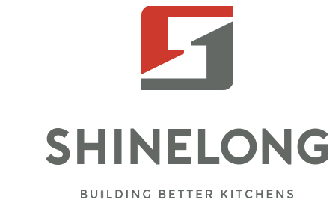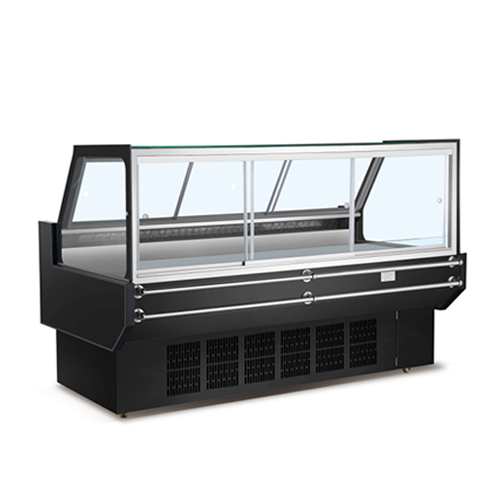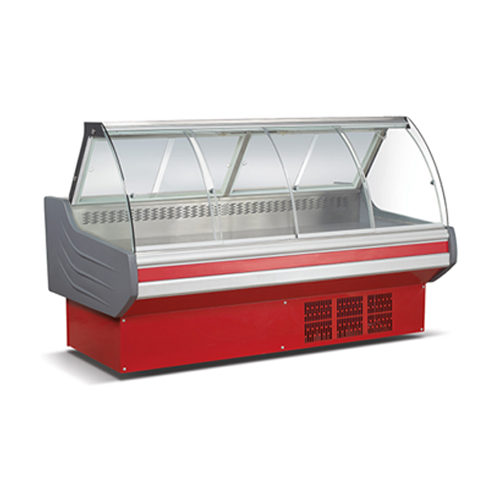သတင်း
ကုမ္ပဏီ ဒီလီ ရေးသားခန်းများ: အမျိုးအစားများ၊ လုပ်ဆောင်ချက်များ နှင့် ဝယ်ယူရေးအကြံပြုချက်များ
ဒီလီ ပြသအပ်မှာ ဘာလဲ?
ဒီလီ ပြသအပ်ဟာ ဘာလဲဆိုတာကို သိရှိမှာဖြစ်ပြီးမဟုတ်ပါက၊ “ဒီလီ” ဆိုတာကို အရင် အဓိပ္ပါယ်ဖွင့်ဆိုပါမည်။ ဒီလီ (delicatessen ဟာ အတိုကောက်) သည် ပြုလုပ်ထားသော ကော်ကြီးများ၊ ချိုးများ၊ သီးသန့်များ၊ ငှက်ပျောက်များနှင့် အထူးပစ္စည်းများကို ပေးရန် အစားအစာ ရှိသော အခြေအနေကို ပေးသည်။ ကုမ္ပဏီဖွံ့ဖြိုးရေး ကိုက်နှိပ်ခန်းတွင် ဒီလီ ပြသအပ် အထူးသဖြင့် ကုမ္ပဏီဖွံ့ဖြိုးရေး ရေခဲသေတ္တာ စက်မှုဝcroft သို့မဟုတ် ချိမ်းထားသော ပြသစေရာကိုင်တွင်းကို အသုံးပြု၍ အဲဒီအစားအစာများကို ပြသပြီး သူတို့ကို သော့ဖြစ်သော အပူချိန်များတွင် ထိန်းသိမ်းထားသည်။
စားသောက်ဆိုင်များနှင့် အခြားပုံမှန် ဖရစ်တွေထက် ဒယ်လီကেစ်ဟာ များများကြည့်ရှုနိုင်ချက်နဲ့ ဝင်ရောက်ရှုံးချနိုင်ချက်ကို အာရှူပြောင်းလဲထားတယ်။ ဒယ်လီကေစ်တွေဟာ အများအားဖြင့် ပြင်ပြီးသော အလေးချိန်ကြီးကွဲပြားသော အခြေအနေများ၊ လှုပ်ရှားနိုင်သော အဆင့်များနှင့် အတင်းအတာများကို ပြင်ဆင်ထားပြီး ပြသမှုကို တိုးတက်စေရန် အတင်းအတာများကို ထည့်သွင်းထားပါသည်။ ပုံမှန်အားဖြင့် အိမ်အခြေထဲမှာ အသုံးပြုသော အိမ်အခြေတွေထက် ဒယ်လီကေစ်တွေဟာ ပိုပြီးပြင်ဆင်ထားတဲ့ အားလုံးကို ထိန်းသိမ်းနိုင်ပါတယ်။ အဲဒီမှာ အားလုံးကို 0-4°C ကို လုပ်ဆောင်နိုင်ပါတယ်။ အဲဒီမှာ အိမ်အခြေထဲမှာ 60°C ထက်ပိုပြီး ပိုပြီးပြင်ဆင်ထားတဲ့ အိမ်အခြေတွေကို ထိန်းသိမ်းနိုင်ပါတယ်။ ဒယ်လီ၊ ကာဖီ၊ ဘေကာရီနှင့် ဂူးရီဆိုင်များမှာ အသုံးပြုသော ဒယ်လီကေစ်တွေဟာ အားလုံးကို ပြသနိုင်ပါတယ်။
ဒယ်လီပြသကေစ်များအမျိုးအစား
အသုံးပြုသူများအတွက် အရင်းအမြစ်များကို ပြသနိုင်သော အချိန်များတွင် ကုမ္ပဏီလုပ်ငန်းများ၏ ဒယ်လီပြသကေစ်များ အဓိပ္ပါယ်အရ နှစ်မျိုးအဓိပ္ပါယ်အရှိန်များအား ခွဲခြားထားပါသည်။ အဲဒီမှာ အိမ်အခြေထဲမှာ အားလုံးကို ပြသနိုင်ပါတယ်။
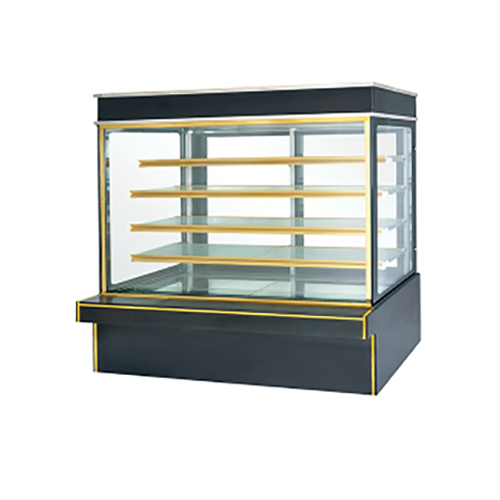
ထိန်ခန်း ဒယ်လီ ပြသအပိုင်းများ
အေးခဲထားသော အစားအစာများကို လုံခြုံစွာထားရှိရန် ဒီဇိုင်းထုတ်ထားသော အေးခဲသော ဒိလ်ကိုယ်စားလှယ်အဖွဲ့များသည် အသားများ၊ ကော်ဖီများ၊ အသီးအနှံများ၊ အစားအစာများကို အေးခဲထားသော အခြေအနေဖြင့် ထားရှိပါသည်။ ဤအေးခဲသော အခန်းများတွင် 0°C မှ 4°C အထိ အပူချိန်ကို HACCP အစားအစာလုံခြုံရေး လမ်းညွှန်ချက်များအရ ထိန်းသိမ်းထားပါသည်။ ဤအေးခဲသော အခန်းများတွင် အသုံးပြုသော အေးခဲမှုစနစ်အမျိုးအစားနှစ်မျိုးရှိပါသည်-
- အပြားလေးမှားမှု အားလုံးကို မကြာခဏ အသုံးပြုသည့် အစားအစာများအတွက် အသံမကြားသော လုပ်ဆောင်မှုကို ပေးသည်။
- လေကို ပျံ့နှံ့စေသော (fan-assisted) အပြားလေးမှားမှု၊ အသားအမှုန်များကို မကြာခဏ လှုပ်ရှားသော ပတ်ဝန်းကျင်များတွင် အလွန်ကောင်းမွန်စွာ အသုံးပြုသည်။
အေးခဲသော ဒိလ်ကိုယ်စားလှယ်အဖွဲ့များ၏ အများစုသည် စတိုးဆိုင်၏ အကျုံးဝင်သော ပုံစံနှင့် ကုန်ပစ္စည်းများကို ထုတ်လုပ်ရေးအတွက် အကောင်းဆုံးဖြစ်စေရန် ရှိပြီးသား စက်မှုအေးခဲမှုစနစ်များနှင့် တစ်ပိုဒ်တည်းဖြစ်အောင် တည်ဆောက်ထားပါသည်။ ခေတ်မှီသော ယူနစ်များသည် R290 (ပရိုပိန်) သို့မဟုတ် R600a (အိုင်ဆိုဗူတိန်) ကဲ့သို့သော ပတ်ဝန်းကျင်ကို စိတ်ရှိသော အအေးဓာတ်များကို အသုံးပြုကြပါသည်။ R404A ကဲ့သို့သော ဟောင်းနွမ်းသော ဓာတ်ငွေ့များကို အစားထိုးခြင်းဖြင့် စွမ်းအင်ထိရောက်မှုနှင့် ပတ်ဝန်းကျင်နှင့် ကိုက်ညီမှုတို့ကို တိုးတက်စေပါသည်။ အော်တိုဒီဖရုစ်စနစ်များ၊ LED မီးများနှင့် ဒစ်ဂျစ်တယ်အပူချိန်ထိန်းချုပ်မှုစနစ်များကဲ့သို့သော အင်္ဂါရပ်များသည် စွမ်းအင်စားသုံးမှုကို လျော့နည်းစေပြီး ကုန်ပစ္စည်းများကို ပိုမိုကောင်းမွန်စွာ ဖော်ပြပေးနိုင်ပါသည်။
ပူချိုးထားသော Deli Display Cases
ပူချိုးထားသော deli cases များကို အခြားအမည်ဖြင့် ပူချိုးထားသော ပြသခန်းများ သို့မဟုတ် ပျော်ရွှင်စွာ ပြသထားသော အစားအစာများ၏ အတွင်းပိုင်း အပူချိန်ကို ၆၀°C အထက်တွင် ထိန်းချုပ်သည်။ အဓိက ပူချိုးထားမှုများ၏ အမျိုးအစားများမှာ ၿ
- Dry-heat မှီးများသည် ရောင်းချသော အစားအစာများကဲ့သို့မဟုတ် ပါးသီးများကို ထိန်းချုပ်ရန် အဆင်ပြေစေသည်။ သို့သော်၊ အချိန်ကြာများစွာ ပူချိုးထားသော အချိန်အတွင်း သေးချိုးစွာ ပျော်ရွှင်စွာ ထိန်းချုပ်နိုင်သည်။
- ပျောက်စီးမှုကို ထိန်းချုပ်ရန် ရည်ရွယ်ထားသော အမျိုးအစားများတွင် ရေပန်း သို့မဟုတ် ဆေးစနစ်များ ပါဝင်သည်၊ ထို့ကြောင့် သူ့အား လှုံ့သော အသားများ သို့မဟုတ် အချဉ်ထုတ်ထားသော အစားအစာများအတွက် ကောင်းစေသည်။
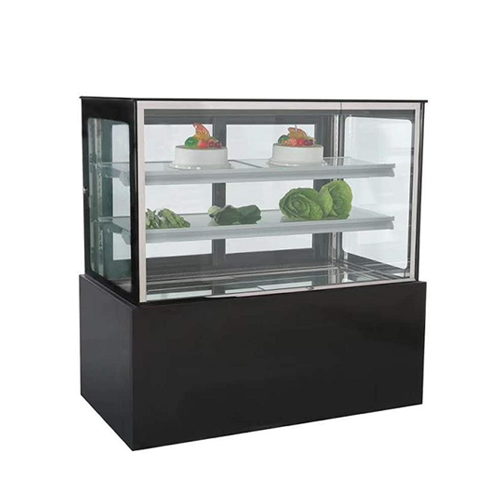
အသွင်သစ်မော်ဒယ်တွေမှာ တိကျသော thermostatic ထိန်းချုပ်မှု (±0.5℃)၊ သန့်ရှင်းရလွယ်ကူစေရန် ဖယ်ရှားနိုင်သော ပုံးထဲသို့ စိမ့်စီးနေသော ပန်းကန်များ၊ အချိန်မတိုင်မီ စွမ်းအင်ခြွေတာသည့် မုဒ်များ ပါဝင်ပါသည်။ အဆင့်မြင့်ဗားရှင်းများတွင် အစားအစာအမျိုးမျိုးအတွက် နှစ်ခုတည်းသော အပူပေးစနစ်ကို ပေးနိုင်ပါသည်။ အများစုတွင် နေ့စဉ်အသုံးပြုမှုကို ခံနိုင်ရည်ရှိစေရန် စတိယ်များကို တည်ဆောက်ထားပါသည်။
Deli Display Cases အဓိက လုပ်ဆောင်ချက်များနှင့် အသားတော်များ
- သိပ္ပံသော အစားအသောက်ထိန်းချုပ်ခြင်း
Deli cases သည် အစားအသောက်များကို ပြင်ဆင်ထားသော အပူချိန်များတွင် ထိန်းချုပ်ရန် တည်ဆောက်ထားသည် - ကောင်းသောအတွက် အပူပြီး၊ ကောင်းသောအတွက် အပူပြီး။ ထို့ကြောင့် အရသာ၊ ပြင်ဆင်ချက်နှင့် အစားအသောက်အားလုံးကို ပြင်ဆင်မှုမှ ပျံ့နှံ့သော အထိပ်ပေါ်ထိုးထားသည်။ - စျေးဝယ်ရေးဆိုင်ရာ အားကို တိုးတက်စေသည်
သို့မဟုတ် ပียง ကျည်းဆင်းခန်းများထက် ပို၍ ရှုပ်ထွေးသည့်၊ ဒီလီ ကেစီများသည် ရောင်းချရန် ဒီဇိုင်းထုတ်ထားသည်။ အောက်ပြီး အလှူရောင်ကို ဖြည့်စွက်ထားသော အလှူပြင်ပြင်များ၊ ရှေ့ဝန်းကျင်များနှင့် အဆင့်အတန်းများသည် anggan အား ယူဆရှုပ်ထွေးမှုကို ဖြည့်စွက်ပေးပြီး အစားအစာ၏ ကိုယ်ပိုင်အရေးကို တိုးတက်စေသည်။ - လုပ်ငန်းဆောင်ရွက်မှု လုပ်ငန်းစဉ်
အနောက်ဘက်သို့ ဝင်ရောက်နိုင်သော အပြုအပြင်များနှင့် သတ်မှတ်ထားသော အတွင်းပိုင်း layout များက staff အား ဝယ်ယူထားသော ပণ္ပဏ်များကို ဝမ်းကြောင်းမှာမှ ပြန်လည်ဖြည့်စွက်နိုင်စေပါသည်။ ဒီမှာ peak နာရီများအတွင်း high-volume လုပ်ငန်းဆောင်ရွက်မှုကို ထောက်ပံ့ပေးသည်။ - သင့်လုပ်ငန်းအတွက် လုံလောက်သော
အဖွင့်အပြင်ပုံစံများမှ full-length အပူချိုးဖြစ်သော ပြသခန်းများအထိ၊ ဒီလီ ကျည်းဆင်းများသည် ဘေကာရီများ၊ စုပြီးစားစရာဆိုင်များနှင့် quick-service outlets တို့အတွက် ကိုင်တွယ်သော format များဖြင့် ရှိသည်။ သင့်လုပ်ငန်း၏ brand image နှင့် အညီအမျှ ပြသပုံစံကို ရွေးချယ်နိုင်ပြီး floor efficiency ကို မြှင့်တင်နိုင်သည်။
ဘာသာအတွက် Deli Display Cases လိုအပ်သလဲ
စားစရာဆိုင်များ & ဂုံတိုက်ဆိုင်များ
စုပ်မတ် ကြောင့်အများသည် အပူချိန်ထိန်းသိမ်းရမည့်အစားအစာအတွက် အပူချိန်ထိန်းသိမ်းရေးစက်မှုများနှင့် အပူပြားစားစရာအတွက် ပြောင်းလဲနိုင်သော အပူချိန်ဆိုင်များကိုလည်း လိုအပ်သည်။ အပူချိန်အားဖြင့် အားလုံးကို အာရုံစိုက်ထားသော အခြောက်အလီဂလাসဆေးကို အသုံးပြု၍ အစားအစာ၊ သီးသန့်ပြုပြင်ထားသော အစားအစာများကို ပြသနိုင်ပါသည်။ မြင်ကွင်းကြီးသော ဒေသများတွင် အားလုံးကို အသုံးဝင်နိုင်သည့် အရည်အချင်းများနှင့် အရွယ်အစားကြီးသည် အဓိကဖြစ်သည်။
ဘဲကာရီများနှင့် ပိုင်းခြားပါးဆိုင်များ
ဘဲကာရီများသည် ပါးဆိုင်များကို အပူပြားစားစရာအတွက် ပြောင်းလဲနိုင်သော အပူချိန်ဆိုင်များကို အသုံးပြုသည်။ အပူချိန်ထိန်းသိမ်းရေး ဒေသများသည် အပူပြားစားစရာအတွက် ပြောင်းလဲနိုင်သော အပူချိန်ဆိုင်များကို အသုံးပြုသည်။ မျက်နှာပြင်မှာ အရွယ်အစားကြီးသည် အသုံးပြုသူများအတွက် အသုံးဝင်နိုင်သည်။ အရည်အချင်းများကို အသုံးပြုသူများအတွက် အရည်အချင်းများကို အသုံးပြုသည်။ အရည်အချင်းများကို အသုံးပြုသူများအတွက် အရည်အချင်းများကို အသုံးပြုသည်။
အများအားဖြင့် ဝင်ရောက်သည့် အစားအစာဆိုင်များ (QSRs)
QSRs သည် အပူချိန်ထိန်းသိမ်းရေး ဒေသများအတွက် အပူချိန်ထိန်းသိမ်းရေး ဒေသများကို အသုံးပြုသည်။ အပူချိန်ထိန်းသိမ်းရေး ဒေသများသည် အပူပြားစားစရာအတွက် ပြောင်းလဲနိုင်သော အပူချိန်ဆိုင်များကို အသုံးပြုသည်။ အားလုံးကို အသုံးပြုသူများအတွက် အရည်အချင်းများကို အသုံးပြုသည်။ အရည်အချင်းများကို အသုံးပြုသူများအတွက် အရည်အချင်းများကို အသုံးပြုသည်။
ဟိုတယ် ဘူဖေ့များနှင့် အစားအသောက်ပေးရောက်မှု
ဟိုတယ်များနှင့် အစားအသောက်ဖြေရှင်းချက်များသည် ပူချိန်နှင့် အေးချိန်လုံးဝ အစားအသောက်များကို ဖြေရှင်းနိုင်သော နှစ်မျိုးလုပ်ဆောင်သော deli cases လိုအပ်သည်။ heated zones သည် ပုံစံကို ထိန်းသိမ်းပြီး chilled sections သည် salads နှင့် desserts ကို preserve သည်။ mobile, stainless-steel units များသည် banquet buffet lines တွင် ကောင်းစွာ integrate သည်။
ဘာသာရေးဖြင့် အဆိုပါ deli store solution ကို ရယူရန် ဘာလုပ်ရမလဲ?
Bakery များမှ ဟိုတယ်များအထိ၊ အစားအသောက် quality၊ hygiene နှင့် visual appeal ကို maintain ရန်အတွက် မှားယွင်းမှုမရှိသော deli display case ကို ရွေးချယ်ရန်သည် အရေးကြီးသည်။ reliable display warmer cabinet ကိုရှာဖို့ဖြစ်စေ၊ သို့မဟုတ် energy-efficient refrigeration food equipment ကိုရှာဖို့ဖြစ်စေ၊ SHINELONG သင့် business အတွက် အကောင်းဆုံး deli showcase setup ကို select၊ customize နှင့် implement ရန် ကျွန်ုပ်တို့သည် အကူအညီပေးရန် ဒီမှာရှိပါသည်။ ကမ္ဘာလုံးတွင် အများဆုံးအသိအမှတ်ရရှိသော turnkey commercial kitchen solution provider အဖြစ်၊ ကျွန်ုပ်တို့သည် သင့်လုပ်ငန်းတော်တော်ရှိ needs အတိုင်း professional solutions ကို offer ပါသည်။
 ရောင်းပြီး ဝန်ဆောင်မှု:
ရောင်းပြီး ဝန်ဆောင်မှု:
 EN
EN
 AR
AR
 HR
HR
 NL
NL
 FI
FI
 FR
FR
 DE
DE
 EL
EL
 HI
HI
 IT
IT
 PT
PT
 RO
RO
 RU
RU
 ES
ES
 TL
TL
 ID
ID
 SL
SL
 VI
VI
 ET
ET
 MT
MT
 TH
TH
 FA
FA
 AF
AF
 MS
MS
 IS
IS
 MK
MK
 HY
HY
 AZ
AZ
 KA
KA
 UR
UR
 BN
BN
 BS
BS
 KM
KM
 LO
LO
 LA
LA
 MN
MN
 NE
NE
 MY
MY
 UZ
UZ
 KU
KU
